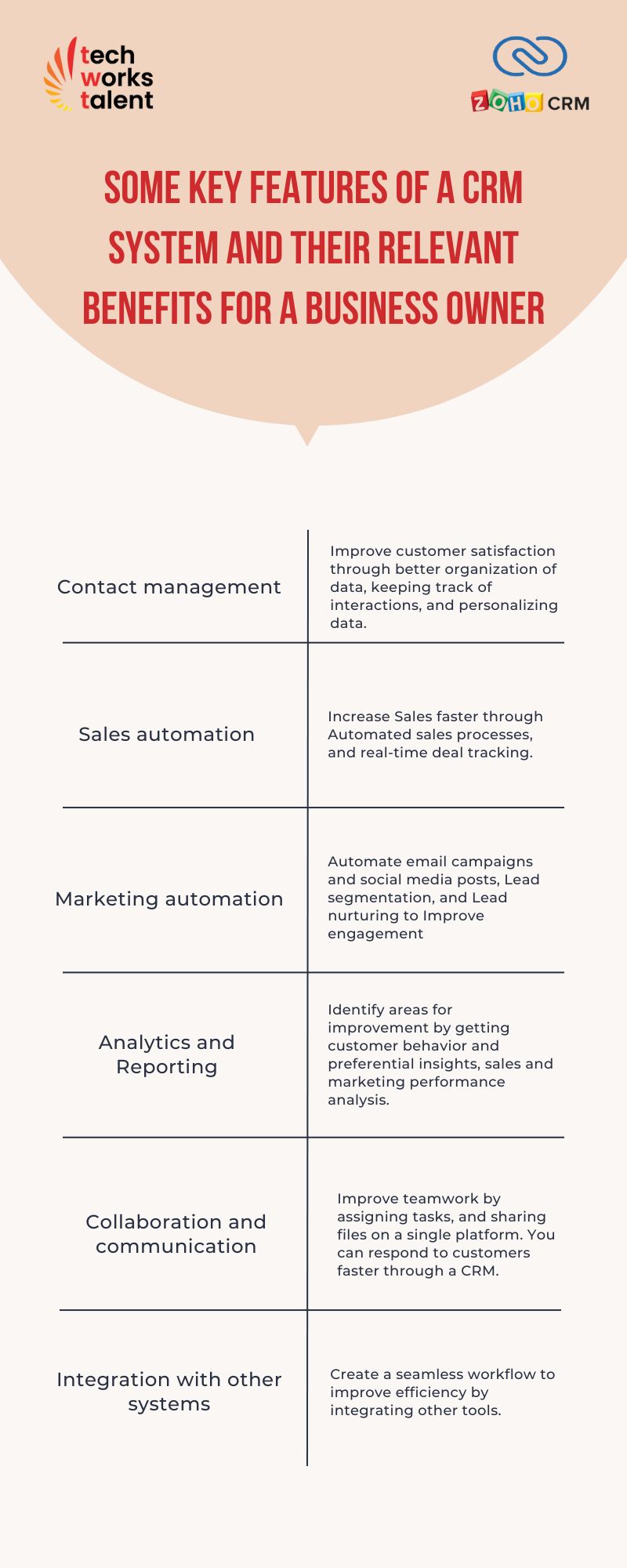Hey there, Shopify Business Owners!!
Having a Strong Customer Relationship is crucial for any e-commerce business to sustain.
It isn’t any different for a Shopify business.
Shopify’s customizable designs, easy-to-use interface, and built-in online store management features make it one of the most popular E-Commerce business platforms today.
With a growth of 201.53% between March 2020 and January 2022 alone and a gross merchandise volume of $197.2 billion in 2022, Shopify is anticipated to grow further.
Its in-built tool provides basic features like website analytics, invoice generator, etc.
But is that all it requires to run a Shopify business?
To be in the Top 5%, i.e., a successful business in Shopify demands advanced automation, customer insights, and third-party tool integrations.
Note: the keyword here is “Successful”.
Here comes the necessity of a CRM for your Shopify website and this article discusses that and the benefits of using one.
The goal is to help you make informed decisions on getting a CRM for your Shopify business.
Let’s dive into the world of possibilities.
What does a CRM let you do with your Shopify business?
As a Shopify store owner, you may wonder if a CRM could be any helpful.
Even worse, some Shopify store owners don’t know that they can use a CRM.
Shopify’s built-in CRM (that’s what most people think it is) is NOT a CRM in the first place. There is no such thing as a built-in CRM in Shopify.
They are just website analytics tools provided by Shopify. These are nowhere near what a CRM could do.
This is such a common misinterpretation that new and even some well-established Shopify business owners have.
Let’s talk further about CRM in this section.
A Customer Relationship Management (CRM) system lets your Shopify business manage all customer-related operations.
That includes collecting, organizing, and analyzing customer interactions, leads, and prospects.
This allows you to improve the customer experience, build relationships, and drive sales.
CRM systems offer many features and benefits to your Shopify business.
So, here’s a table of some key features of a CRM system and their relevant benefits for a business owner:
| Feature | Benefit |
| Contact management | Improve customer satisfaction through better organization of data, keeping track of interactions, and personalizing data. |
| Sales automation | Increase Sales faster through Automated sales processes, and real-time deal tracking. |
| Marketing automation | Automate email campaigns and social media posts, Lead segmentation, and Lead nurturing to Improve engagement |
| Analytics and Reporting | Identify areas for improvement by getting customer behavior and preferential insights, sales and marketing performance analysis. |
| Collaboration and communication | Improve teamwork by assigning tasks, and sharing files on a single platform. You can respond to customers faster through a CRM. |
| Integration with other systems | Create a seamless workflow to improve efficiency by integrating other tools. |
These are the Times an External CRM would be really handy
While retaining customers is one of the most crucial aspects of a Shopify business, you are forced to provide good customer service.
And doing that on a consistent basis isn’t possible at all times and for everyone.
It is inevitable that there will be situations that will test you and let’s see a few of them in this section.
Times When You Need Advanced Customer Segmentation.
If you’re an established Shopify business owner, you’d know this.
Customer data like sale history, browsing behaviors, payment statuses, and demographic information increases as the business grows.
CRM segments the customer base allowing easy accessibility of all the customer data.
For eg, segmenting customers based on payment status will let you follow up and other categories will let you personalize content, which is also our next topic.
When Personalization is Required.
You wouldn’t want your product to end up on the wishlist. You want them sold.
What if you could obtain their data and send them personalized emails?
And, when 71% of the customers expect personalized services from businesses, a Shopify business owner Who makes effort to take advantage of this stat prevails.
But this becomes close to impossible to manage without a CRM.
A CRM personalizes customer experience with advanced algorithms.
This naturally leads to higher customer satisfaction and sales.
Times when you need to capture leads on multiple platforms.
As a Shopify business owner, you might have to capture leads from platforms like social media, email, chatbots, and phones.
Especially if you’re starting up, this could feel daunting.
A CRM streamlines all the lead information from these platforms and serves as a junction.
This helps you improve lead nurturing and retention.
Times that demand Integration with other software tools.
Businesses use various software in order to provide seamless services.
That includes Point of Sale software, delivery management system, HR management software, etc.
At some point in your Shopify journey, you will have to access one or all of these tools in a collaborative manner.
A CRM will integrate these tools into a unified spot to work in a collaborative way to reduce efforts.
When complex sales and marketing automation is needed.
More often than not, a Shopify business needs to automate sales and marketing processes.
That included lead scoring, ad campaigns, and targeted promotions.
A CRM provides this necessity (which sounds like a luxury).
You can scale your operations and improve your bottom line with this feature.
When Poor Inventory Tracking Starts to hurt your Reputation.
Taking a sale order without knowing the availability of stock will be detrimental to your growth.
This happens when you don’t track the sales and inventory of your best-selling products.
And this becomes complicated when you sell on multiple platforms.
CRM brings all the sales insights such as channel-specific sales, changes in consumer demands, and hot-selling products onto one platform.
This helps you stay informed of your sales which in turn will keep you updated on your performance and inventories.
Situations that demand Scalability.
As E-Commerce growth is skyrocketing every single day, it is essential for your processes to be adaptable.
A CRM makes it 100X simpler.
It offers scalable features to help you adapt to changing customer needs and manage their growth.
This makes sure your graph keeps growing linearly.

In Conclusion, if you could relate to any of the above, it’s high time you consider a CRM for Your Shopify Business.
In conclusion, both Shopify CRM software and ecommerce CRM software are essential tools for businesses operating in the ecommerce space. While Shopify CRM software is designed to help businesses manage their sales, orders, and inventory, ecommerce CRM software is focused on managing customer data and interactions. However, both tools share the goal of helping businesses improve their operations, increase sales, and enhance customer satisfaction. By using both Shopify CRM software and ecommerce CRM software together, businesses can create a powerful ecommerce ecosystem that streamlines their operations and helps them grow their business.
Getting a CRM for your Shopify business is an investment that’ll give back high returns.
Because the smallest setbacks (well, at least you think it is) will impact the most.
And, It is essential to consider your specific needs, goals, and limitations before finalising your CRM.
We have a complete guide on how to choose a CRM for your small business. Make sure to check that.
This would be your next step in selecting a CRM for your Shopify business.
We wish you great success in your Shopify business.
We’ll see you on another interesting topic.

